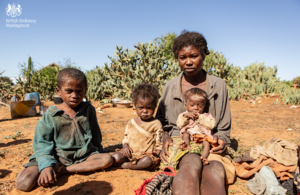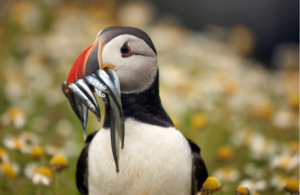As active members (and in Michael and Paul’s case, founder members) of the Nuclear Stammering Network, there are probably no better people to help us understand the impact of stammering than Michael Wright, Paul Martin and David Adams.
Or better people to provide support.
For up to 3% of all adults, stammering will be a lifelong condition. That’s one of the reasons why days like today’s International Stammering Awareness Day is so important.
For those who stammer, the hardest thing to say is often their own name
When he isn’t working as an outage planning engineer at Sellafield, Michael dedicates his time to helping those who stammer, and educating those who don’t.
He said:
At a basic level, someone who stammers will repeat, prolong or get stuck on sounds or words.
There are two types of stammers, an overt stammer and a covert one.
With an overt stammer you will clearly see the struggles that the person is having with the repetitive sounds they may make.
Then there is covert where the person is always analysing what they are saying, switching and swapping words around to words that they can say without stammering.
Paul Martin, a project manager at Sellafield, added:
Both types are mentally and physically draining.
But there is so much more to it. It’s a bit like an iceberg, there are parts that you can see like the person stammering, shaking their head or making rapid eye movements.
But what you don’t see is the self-doubt, shame, fear, anxiety, loneliness, depression and feelings of incompetence that the person is also dealing with.
You might assume that complicated words or sentences are the biggest challenge for someone with a stammer, but actually the hardest thing for them to say is their own name”.
The pandemic brought new challenges
Michael and Paul helped to set up the Nuclear Stammering Network back in 2016. Their mission is to champion the needs of people who stammer and to encourage the nuclear industry to provide support throughout people’s careers, regardless of their role or area of work.
They work with people across Sellafield Ltd but also within our local communities of Copeland and Allerdale in West Cumbria.
Covid and the subsequent national lockdowns were challenging for everyone as people adapted to working from home, but for those with a stammer it was a struggle.
Michael said:
In the early days of the pandemic, before our IT teams were able to roll out video conferencing to everyone, there was a reliance on telephone conference calls in place of face-to-face meetings.
People who stammer will try and avoid the use of telephones at all costs, even when they are in the office. They cause anxiety and stress because they may be overheard and judged on their speech when making calls.
And you can’t see the other people on the call or their reactions, and the call might include people you’ve never met before.
So, in those early days people were faced with their biggest nemesis – making telephone calls – on a daily basis, sometimes several times a day”.
When Sellafield Ltd introduced Microsoft Teams for holding meetings, Michael and members of the stammering network were relieved.
Paul explained:
Teams brings back the face-to-face element of meetings, and our members have told us that the platform is really helping their confidence to grow as they embrace this new way of communicating”.
Covid also brought opportunities
The use of video conferencing platforms meant that Michael, Paul and others were able to support the network members and people in the local community throughout lockdown.
Michael said:
Some people really struggled during lockdown, not only with their speech but with the sense of isolation. We were able to set up support sessions using Zoom and these were really well received.
There are numerous tools and techniques that help people with a stammer gain control of their speech. A residential session with The Starfish Project helped me to learn costal breathing. It’s what opera singers use when signing”.
Paul added:
Having a remote platform to share awareness of these tools, techniques and courses available, as well as a safe space for people to practice their speech, has been so important.
The network is going global
In July 2020 Michael and fellow Starfish Project member, Chloe Powell, set up a Facebook group to take the support available global.
‘Stand Up To Stammering’ now has almost 700 members from all around the world and has received recognition from the British Stammering Association for the good work they are doing.
Senior project inspector David Adams helps to run the Facebook group on a day-to-day basis.
David explains how the group works:
Me, Michael, or another of the admin team will go live in the group and ask a stammer related question for members to reply to. It is completely up to each member whether they reply with a pre-recorded video of their own or whether they too go live in the group.
It is a safe environment for members to practice their speech without being judged, somewhere to go if they are experiencing difficult times and a place to celebrate their achievements.
We also have fortnightly support groups via zoom”.
Michael added:
It’s amazing to watch a member join the group with little confidence as well as a sheer difficulty in speaking, and watch them progress by engaging in the daily challenges you can clearly see their confidence grow and their speech improve. That’s why we do what we do.
Understanding stammering is one way we can all help
What three things do they wish people without a stammer knew about stammering?
Michael started the list:
I’d like everyone to know that stammering is not caused by anxiety or stress, but people may stammer more when stressed or anxious.
David added:
For people to know that there is no link between stammering and intellectual capacity. And it has nothing to do with flaws in someone’s character”.
Their final thought was unanimous:
For people to know that you can help someone with a stammer. Give them time to speak, and maintain eye contact with them, and let them know that our support network doors are open to them”.

